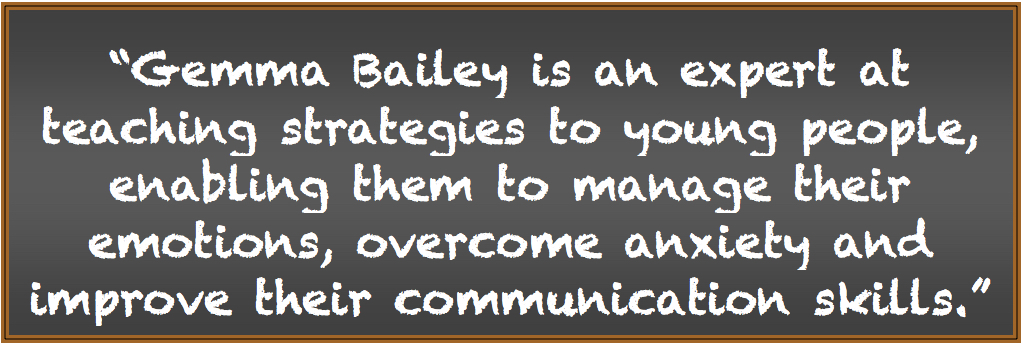In my work with NLP4Kids I provide practical solutions to help children overcome emotional challenges, to increase confidence and self esteem and therefore enable children to reach a greater learning potential.
Book a free consultation worth £200
Common problems for children include:
– Exam stress e.g. 11+ examinations, GCSE’s or specialist subject exams.
– Lack of Confidence Caused by natural shyness or life experiences.
– Low Self Esteem e.g. Self doubt, lack of assertiveness, negative beliefs, sensitivity.
– Phobias From mild fears to sheer terror.
– Bereavement– Remember this can be a confusing time for children, they may react to the emotions of others who are close to them or may experience a deep loss for someone/something that may be regarded as minor by others around them.
– Parents Divorce Or any other kind of changes in home life can also cause disruption to an ordinarily balanced emotional state.
My skills are designed and adapted from the effective techniques in NLP to help children to become better able to manage their own emotional states, to become inspired and motivated by the learning opportunities that are offered to them.
The techniques I use are delivered in a way that is fun and comprehensible for children, encouraging them to co-operate more effectively with others as well as improving their  confidence and commitment when working individually.
confidence and commitment when working individually.
Children are much easier patients than adults as their minds are more open to the idea of improvement. They have not received the same conditioning from life that adults have. This means that results occur much more quickly when working with children.
I ask parents to support their child throughout their treatment in a variety of ways, and this may usually involve others within the family behaving or reacting in new ways.Since I usually work alone with the child after the initial consultation involving the child and parent(s) I am able to build up good rapport with the child, and this way the child will usually express themselves a little better when their parents are not around. This is because when the parents are in the room, they would tend to let their parents do most of the talking and thinking!

